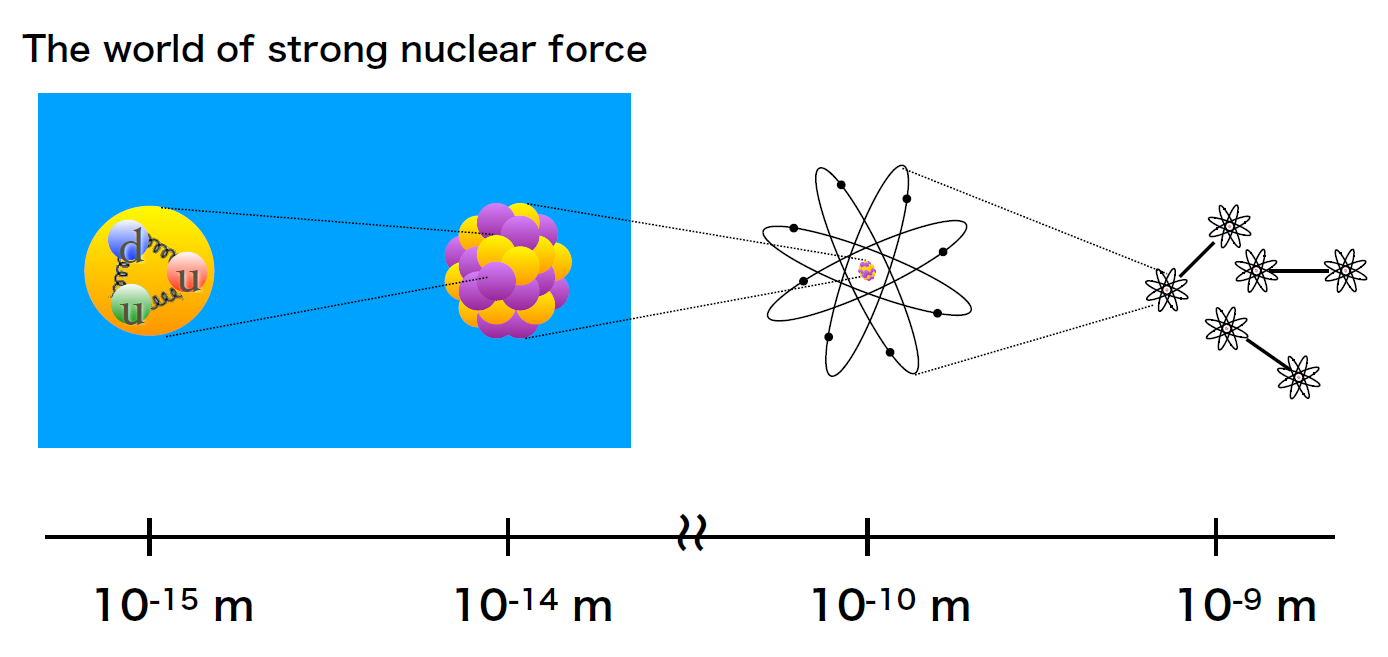Particle and Nuclear Theory
Nuclear Theory
http://www.nucl.phys.tohoku.ac.jp/index-e.html
Staff
| Professor : | Emiko Hiyama | |||
| Associate Professor : | Shoichi Sasaki HP | Kazuhiro Watanabe | ||
| Lecturer : | Daisuke Yoshida | |||
| Assistant Professor : | Akira Ono | Yuki Kamiya | Nodoka Yamanaka |
Rsearch
Nuclei are quantum mechanical many-body systems which consist of protons and neutrons. As they are self-bound systems with finite number of constituents, many rich and complex phenomena have been known to occur there. One of the primary goals of nuclear physics is to address them starting from the nucleon degrees of freedom. In the last two decades, nuclear physics has extended its research area also to hadrons themselves, which are aggregation of quarks. The modern nuclear physics thus deals with both nuclei and hadrons from a point of view of many-body physics.
The goal of low energy nuclear physics is to construct the comprehensive microscopic framework that describes (i) bulk nuclear properties (such as masses, radii, moments, and nuclear matter), (ii) nuclear excitations (the variety of nuclear collective phenomena), and (iii) nuclear reactions. The goal of hadron physics, on the other hand, is to address (i) the properties of the QCD vacuum (i.e., the physics of chiral symmetry breaking and chiral restoration), (ii) its hadronic excitations (i.e., the spectrum and structure of hadrons), and (iii) its several phase transitions (i.e., the quark matter at high temperature and/or high density), based on the quantum chromodynamics(QCD).
In this group, a variety of pioneering works related to nuclear and hadronic phenomena from low to high energies are being carried out. Present major activities covered by this group include:
- Structure and reactions of unstable nuclei,
- Structure of hypernuclei,
- Few-body problem,
- Multi-quark systems,
- QCD vacuum structure,
- Hadron structure from lattice QCD,
- Hadron-hadron interactions from lattice QCD,
- Heavy quark physics,
- Liquid-gas nuclear phase transitions.


